What are the long-term effects of school closures?
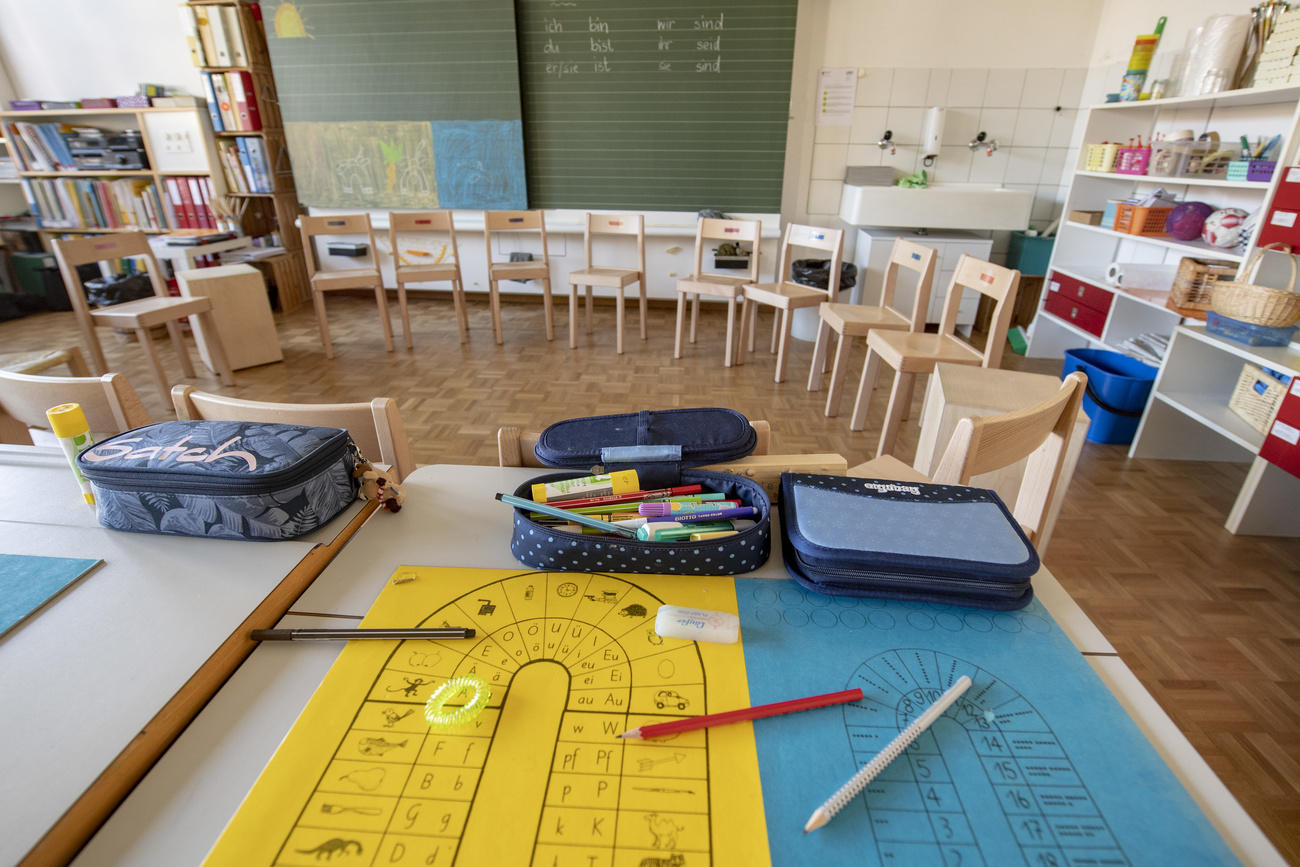
Concerns have been raised that pupils, particularly those from more disadvantaged backgrounds, might fall behind in their learning due to the schools being in coronavirus shutdown. Inequality could rise, experts say.
Schools in Switzerland are currently closed to April 26 and even longer in some cantons. The closure, decided by the federal government, was an unprecedented step for Switzerland (as cantons are usually in charge and make decisions on educational matters).
+ Read why the government finally took the decision to close schools
The government has already indicated that could be a gradual loosening of some, as yet unspecified, corona restrictions at the end of the month. It is due to discuss which measures in its meeting of April 16.
+ Here’s what the government had to say on April 8
Around one million pupils are affected by school closures. The aim is for them to be studying at home, using worksheets, online platforms and video conference lessons, as we have previously reported in our first story on schools coping with corona closures.
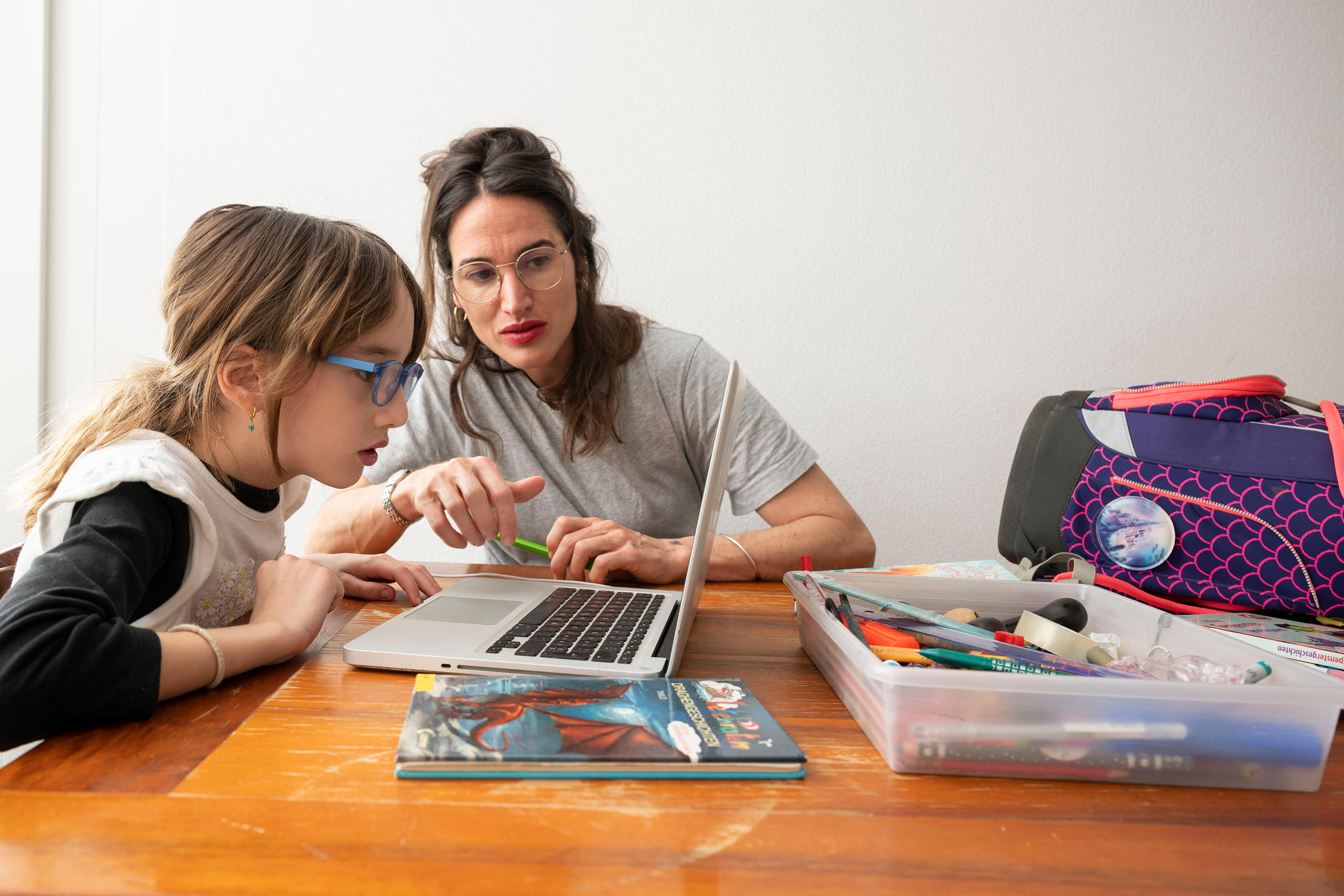
More
How are Swiss schools and pupils coping with closures?
But not all pupils benefit from the same level of support at home. For migrant families in particular, the situation can be challenging, as Swiss public television SRF has reportedExternal link. It profiled Ingrid from Langnau am Albis near Zurich, who came to Switzerland with her family from Colombia four years ago. The diligent pupil learns at home for four hours a day, but encounters problems when she doesn’t understand something.
“For example, my father doesn’t understand much German, I try and translate for him, but when he still doesn’t understand, I write to my teacher,” Ingrid explained.
Her mother, who is still going out to work as a cleaning lady, added that although she, her husband, and the teachers were doing their best to support Ingrid, she was still worried about her daughter’s future.
Remote learning: the challenges
Beat A. Schwendimann, board member of the German-speaking Federation of Swiss teachers (LCH),External link said that teachers across the country were doing their best to minimise the disruptive effects of the pandemic, “but remote learning cannot provide a comprehensive replacement for all aspects of school learning”.
“Not all subjects can be remotely taught at the same standards of quality. Depending on their parents’ work situation as well as their level of education and language, students receive varying amounts of support at home. Also, not all students have current technological equipment available or a quiet place to work. This further contributes to already existing inequality among pupils.”
The inequality issue in Switzerland pre-dates the corona pandemic. It has been flagged up by the OECDExternal link several times in its PISA global assessment of 15-year-old pupils.
It is a well-known fact in Switzerland that children of academic parents are more likely to get into baccalaureate school, which prepares pupils for university, than those whose parents have a lower level of education (50.6% of pupils versus 12.2%, according to figures quoted by SRFExternal link.)
+ Foreigners suffer disadvantage in school career
Also suffering from the school closures are pupils with special needs who no longer get the same support, like speech therapy, as they normally would under Switzerland’s inclusive schooling system.
+ Inclusive education proves a success
“Teachers try to individually support students remotely,” Schwendimann said in email comments. “School social workers are in contact with families to provide support. However, it is difficult to provide adequate remote support for students with migrant backgrounds or special needs students. Politicians are tasked to develop fair solutions that take these extraordinary circumstances into account.”
Uncertainty
The problem is that no one knows yet just how long the nationwide closure will last. It may become clearer after the government’s meeting of April 16.
+ Read the latest on the coronavirus in Switzerland here, including the latest figures
Some experts have previously suggested that schools could be closed until the summer. There has even been the suggestion, made in a newspaper interview by a leading teacher in canton Zurich, that pupils might have to repeat the year if this were to be the case – but not all educational experts agree with this. It should be possible to catch up their learning loss with teachers’ help, they argue.
What is already clear is that the school year 2019/2020 will be counted as such and not be extended in any way, as the Swiss Conference of Cantonal Education Ministers (EDK) stated on April 2. Pupils will get the note “no classroom teaching, corona pandemic” in their school records and secondary students will receive their diplomas.
Social issues
Child protection representatives have been worrying about the mental and physical effects on children during the pandemic. “Children are the hidden victims of the pandemic,” said UNICEF Switzerland’s head Bettina Junker on SRFExternal link. Their rights to education, to meet up with other children, freedom and play are all being affected.
The organisation Child Protection Switzerland has raised concerns of more domestic violence aimed at children as tensions rise during the lockdown. It and other organisations working in the field have called for schools to be reopened sooner rather than later, arguing that schools have a “control role” for flagging up at-risk children. A gradual opening of schools, starting with small groups of primary children could be a solution, it has been suggested. However, education experts say this would be hard to put into practice.
International comparison
According to the OECD, school shutdowns due to the COVID-19 crisis have taken place in more than 150 countries. It says however that data from its global PISA assessment in 2018External link shows that most of the education systems represented there “are not ready for the world of digital learning opportunities”.
In Switzerland, over 95% of students report that they have a computer to use for working at home, but in Indonesia, it is only 34%.
In an interview with Swiss public television SRFExternal link, the OECD’s Andreas Schleicher added that compared with other OECD countries, Switzerland’s schools were relatively well equipped technology-wise, but there was “more to do among the teachers” in terms integrating technology into innovative lesson concepts, according to what head teachers have said in the PISA survey.
What are your experiences of children remote learning in your country? Leave us a comment below. We may use a selection in a follow-up story.

In compliance with the JTI standards
More: SWI swissinfo.ch certified by the Journalism Trust Initiative

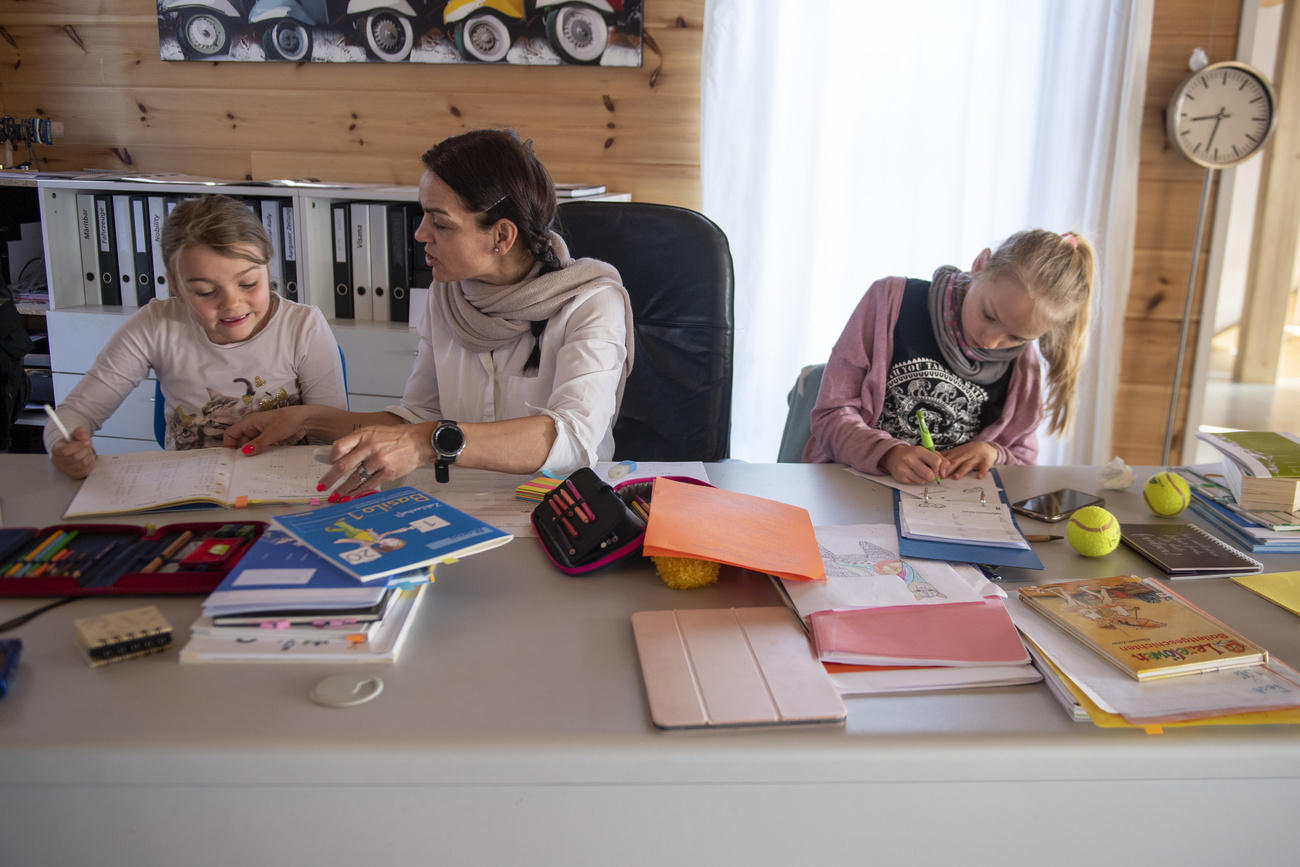
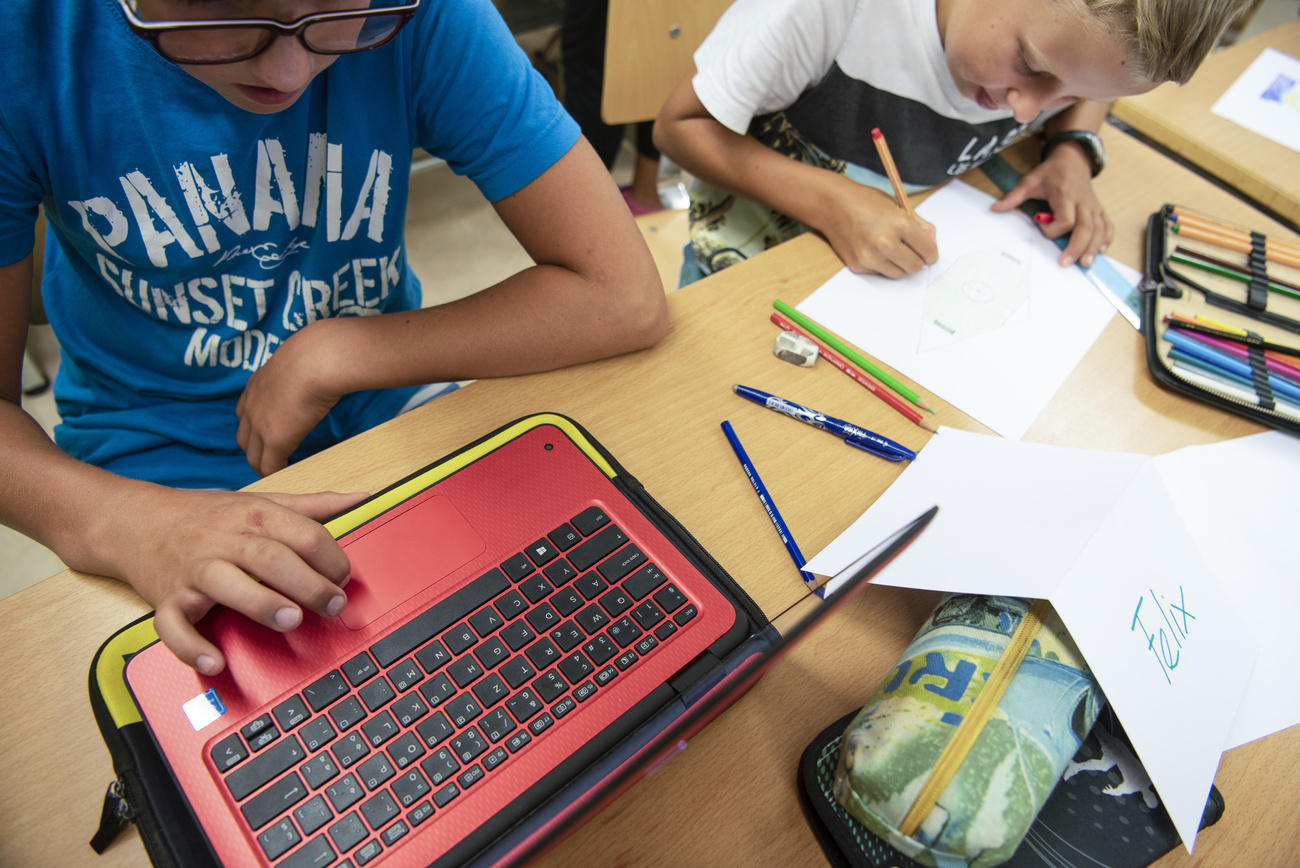
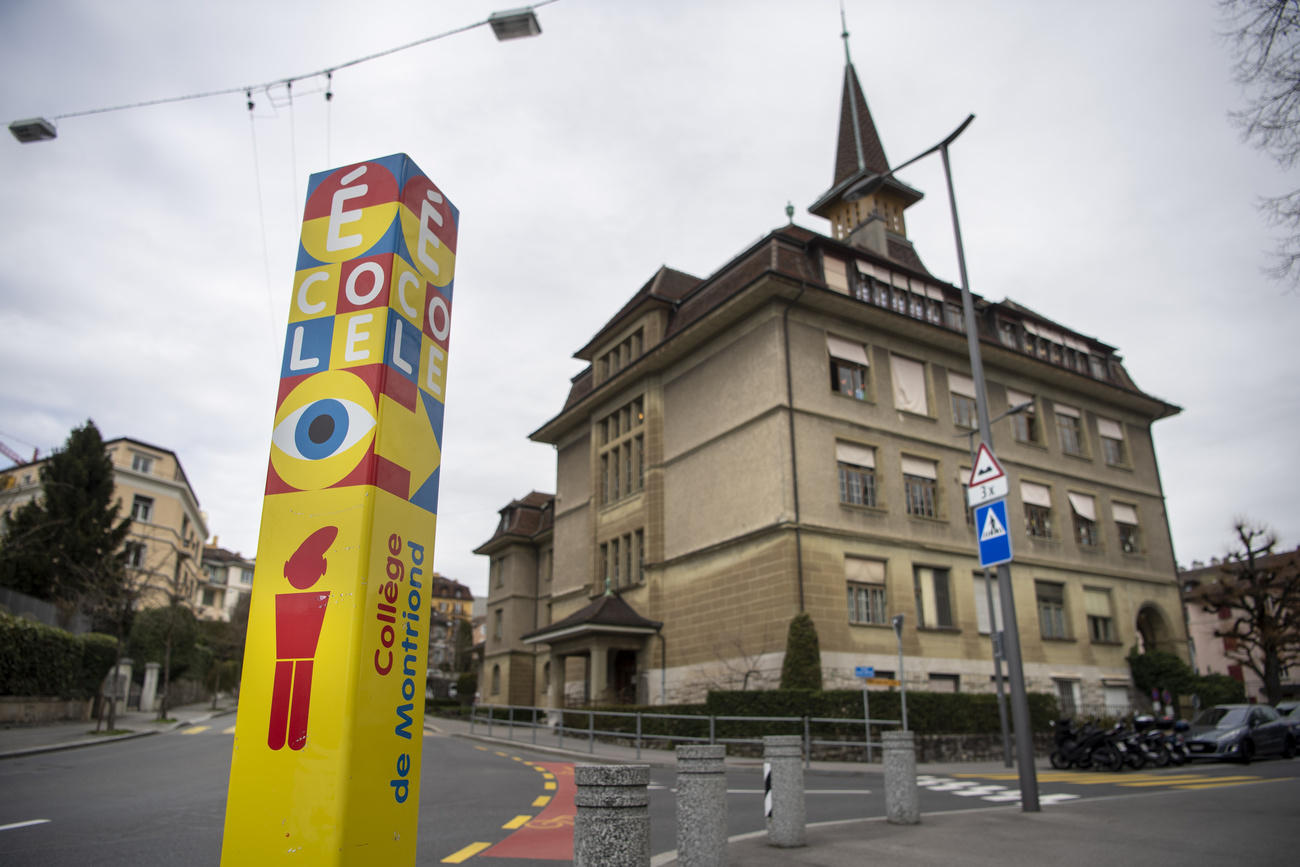
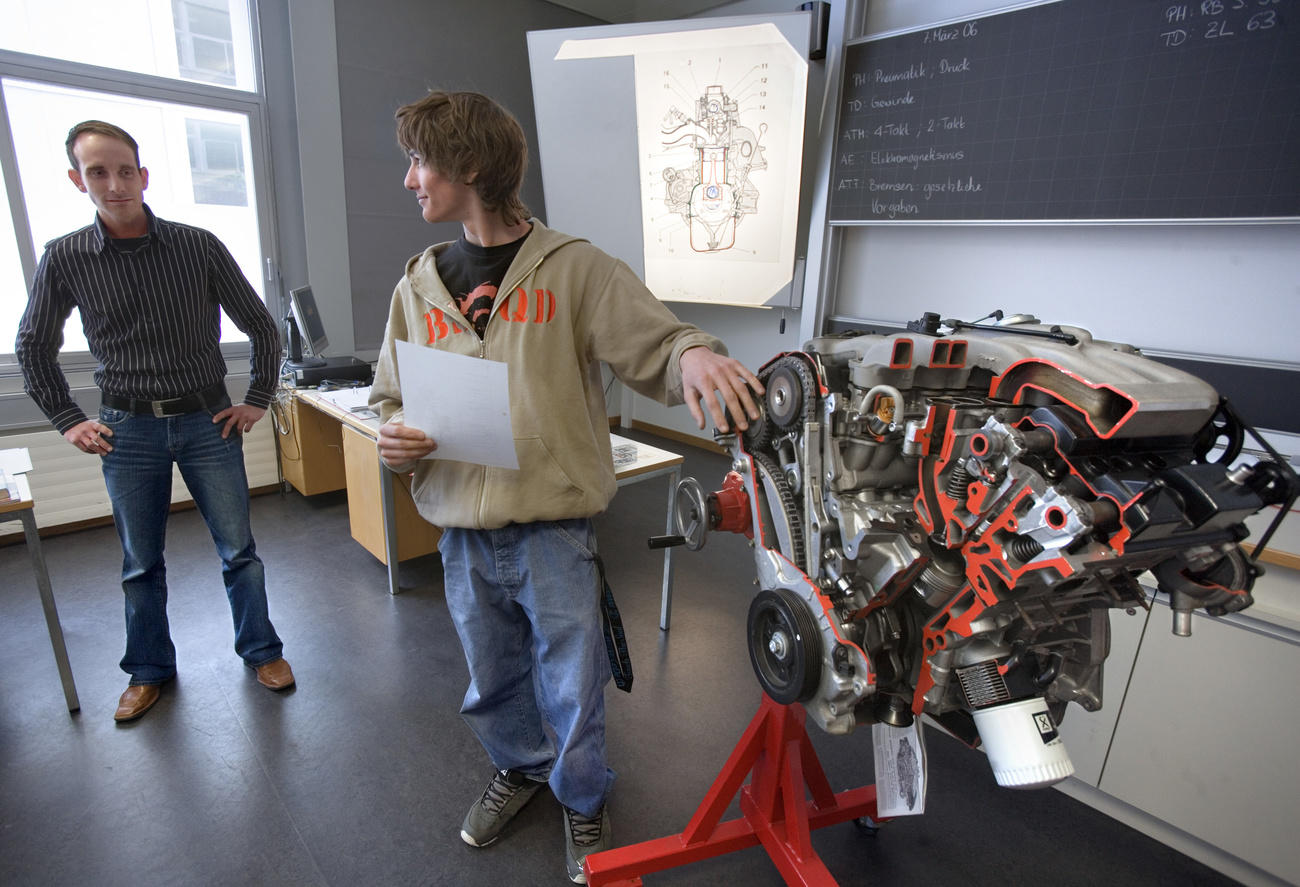
You can find an overview of ongoing debates with our journalists here. Please join us!
If you want to start a conversation about a topic raised in this article or want to report factual errors, email us at english@swissinfo.ch.